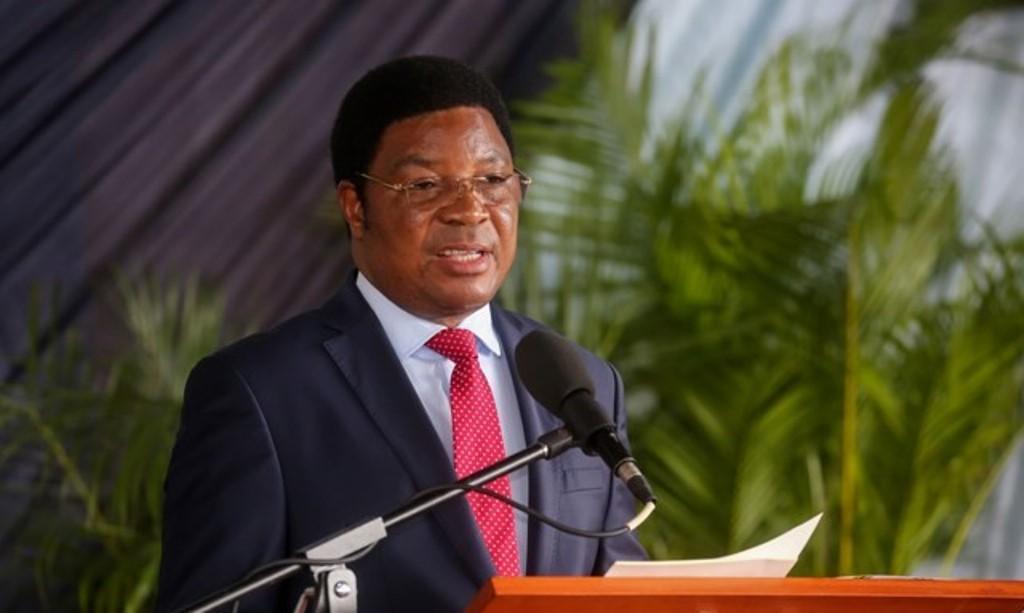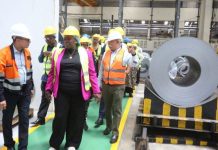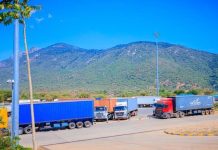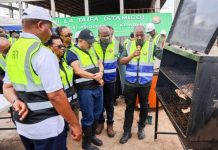Africa-Press – Tanzania. PRIME Minister Kassim Majaliwa has said containers of mineral sand that are being transported outside the country have export permits, denying claims that they were being smuggled outside. Premier Majaliwa issued the clarification when responding to a question by Msalala lawmaker, Idd Kassim Idd (CCM) during the Prime Minister’s weekly questions session, taking place every Thursday.
In his question, Mr Idd said despite the government’s decision to ban exportation of mineral sand, some containers being transported via the Dar es Salaam Port and other areas including Bulyanhulu.
In his response the Prime Minister said he was also aware that there were claims on social media that the containers full of mineral sand were illegally being exported. He told the House all containers that were being exported had export permits after being sold officially and the government received due taxes.
“In 2017, we banned exportation of mineral sand after learning that there were a lot of deceitful businesspeople, who were dodging taxes by concealing the contents in the containers,’’ he said.
He added that due to various reasons in protecting the country’s resources the government formed a team of experts to investigate over 300 containers at the Dar es Salaam port that were prohibited from being transported outside the country.
Later, after the committee submitted its report, he added, the government decided to form a joint company between the government and Barrick Gold under the name Twiga Minerals Corporation.
According to Mr Majaliwa under this partnership, currently all containers of mineral sand are first sold and after the government gets its money from the content of that sand, then businesspeople are issued with export permits, whereas the buyer has the discretion to export the containers to any country in the world.
“In fact we have been doing a very good business and from mineral sand we have managed to increase revenues obtained from minerals just as the Minister for Minerals explained when tabling his budget estimates for 2021/2022 financial year recently here,’’ he said. Under the administration of the late President John Magufuli, the year 2017 is described as a turning point for the country’s mining sector, which has seen Tanzanians today earn their fair share of mineral resources.
The fifth phase government’s determination to transform the mining sector led to various steps that have been taken, including banning gold and copper concentrates exports, the formation of special presidential committees and negotiation teams to ensure the country benefits from its natural resources.
During that time, the Parliament also passed three laws which significantly increased government control of minerals, oil and gas resources. Among others, the laws have increased the royalty rate on gold from 4-6 per cent and have allowed the government to own a 16 per cent share of mining companies’ stock without compensation.
The most significant change is the endorsement of the Natural Wealth and Resources (Permanent Sovereignty) Act, 2017, including minerals. The law requires Parliamentary approval for future investor-state agreements, which must “fully secure” the interests of Tanzanians and restrict investors from exporting raw minerals, repatriating funds and accessing an international dispute resolution mechanism.
It has also facilitated the establishment of Twiga Minerals Company whereby the government owns 16 per cent shares while Barrick owns 84 per cent.







